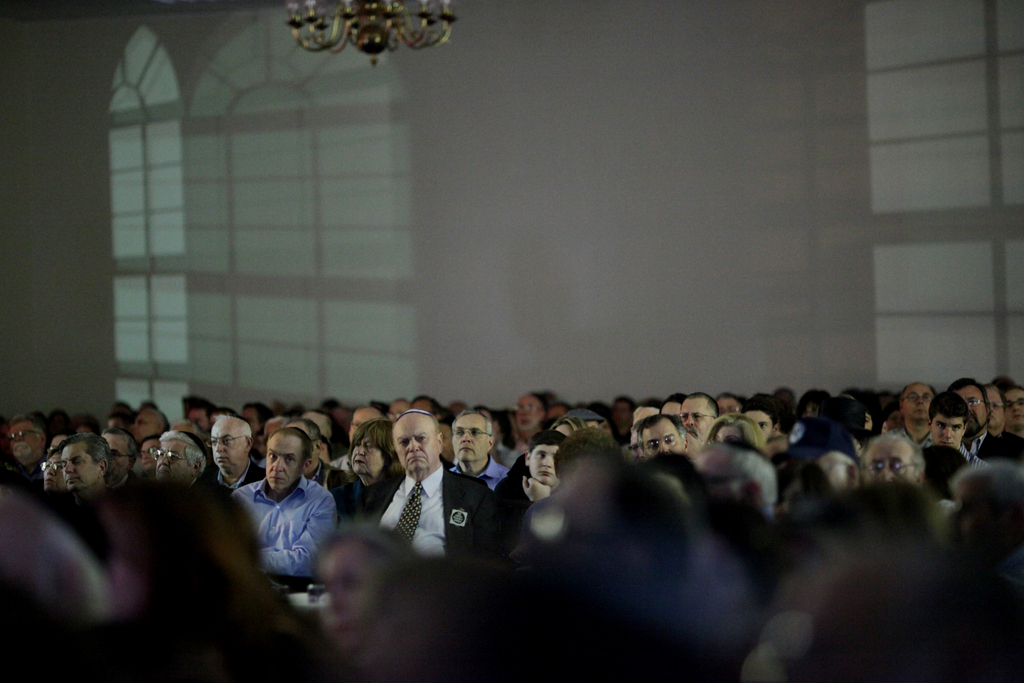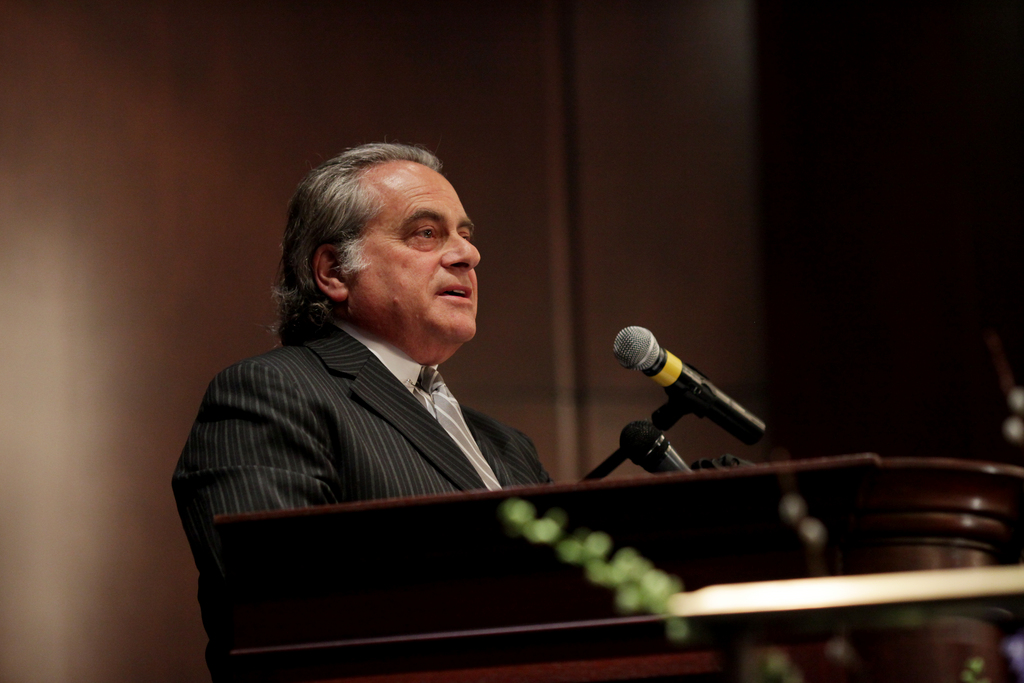The memory of memory
Holocaust commemoration draws hundreds in Lawrence
By Sergey Kadinsky
Issue of April 16, 2010/ 2 Iyur 5770Attorney Benjamin Brafman has defended millionaires and murderers. But until Sunday night, he never defended millions.
“For 35 years, I’ve spoken on issues of Israel and Judaism,” said Brafman in an impassioned address at Congregation Beth Sholom in Lawrence. “But I’ve never spoken for six million murder victims.”
Brafman, the son of Holocaust survivors, was the second speaker at the community-wide Yom Hashoah commemoration held on the oldest Modern Orthodox synagogue in Long Island. Brafman’s parents lived in prewar Vienna, which had a sizable Jewish community. On Kristallnacht in 1938, he said, every synagogue in Vienna was torched.
“Can you see us all dead, in one night, 800 Jews?” Brafman asked the crowd. “It’s hard to get your mind around this. Now, multiply it by 6,000 times.”
If anything, the theme of the program was not the memory of the Holocaust, but the memory of the memory of the Holocaust, which is gradually becoming more distant as survivors die. A point Brafman stressed and re-stressed in his speech; a point felt by the Holocaust survivors in the audience that hung on his every word.
“Until my parents died, I felt their sadness, and many of you have similar feelings,” explained Brafman. “We had eyewitness testimony.”
Regarding his children, he added, “They need to hear it from us.”The keynote address was delivered by Charlotte Gilman, a Belgian-born child survivor who hid in Catholic convents and orphanages during the Holocaust. In Western Europe, Jews initially were not subject to wholesale massacres, but rather to a gradual tightening of anti-Semitic laws, followed by deportations.
“You acted gentile, and as long as you were able to go to school, it was fine,” said Gilman. “But you needed an identity card, and it had a big J stamped in it.”
Those who failed to register as Jews were arrested and deported to concentration camps. Initially hiding in Brussels, Gilman and her family constantly evaded authorities, who searched apartments for hidden Jews.
“My uncle, aunt and 3-year-old cousin were living in a nearby apartment, and my mother was going to visit them,” Gilman recalled. A sympathetic bakery owner told her to turn around. “She said, ‘Don’t continue, because they were waiting for you,’” said Gilman. “And so my mother turned around.” Having arrested her relatives, police officers waited outside the apartment to catch other family members.
Helped by her mother’s boss, George Ramson, Gilman and her sisters, Flora Singer and Betty Rubenstein, were spirited away to Catholic institutions, where they lived in secrecy until the war ended.
Recent HAFTR graduate Joe Klein, screened his documentary “Surviving Surviving” about the plight of impoverished Holocaust survivors living in New York. Klein produced the film for his eighth grade thesis.
“I want to help these heroes before they reach 120,” he told The Jewish Star when the film was first completed.
While there is much evidence of the Holocaust, the lack of graves bothers Brafman. “There are no graves — you are the living headstones,” he said.
Brafman’s mother, Rachel, left Vienna before the war, never to see her parents again. “I was told that her parents were crying terribly, never to see their children forever,” said Brafman. “She was 15 years old at the time.”
Brafman’s Aunt Sima was less fortunate. Deported to Auschwitz with her husband and infant baby, she was offered the chance at slave labor, but refused to part with her daughter. “Sima and her mother were sent to their deaths because they would not let go of their child,” said Brafman. “My grandfather was probably afraid that no one would know that he had lived.”
With approximately 1,000 people attending the event, Rabbi Kenneth Hain of Beth Sholom considered it a resounding success.
“It was informative and emotionally beautiful,” he said. “It really allowed, whether we are there or not, to actually feel a bit of what the Shoah was, and what it should mean to us.”
Brafman concluded his speech with a plea. “You have to help other people remember,” he said. “We have Hashem and we have each other. That’s all.”

 47.0°,
Mostly Cloudy
47.0°,
Mostly Cloudy 







